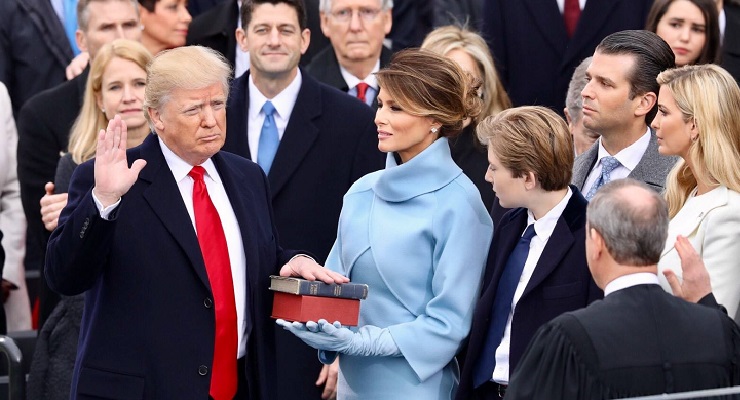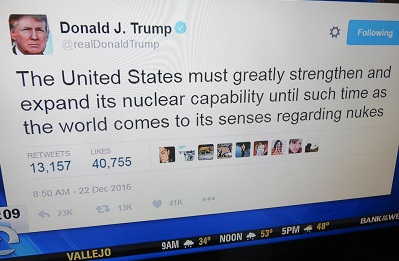
Twitter. Yes, we’re going there. Twitter has 328 million users. One of them is Donald J. Trump. One of them, most likely, is also you.
This is the first time in history that we are able to hear directly from the President of the United States that is not on television or radio. It is also the first time in history that we are able to respond directly to what the President of the United States says. And he’s listening. How do we know? Because he’s blocking people with whom he disagrees.
People seem to forget common decency when it comes to online discussion. It must be related to the supposed or false sense of anonymity. But Twitter is different than other online communication. Lots of people use their real name and picture. And yet, that still doesn’t stop them from saying things they may not say to someone’s face. People resort to name calling or using profane language which usually results in being blocked.
If someone annoys you on Twitter, you block them. If they get on your nerves, you block them. If they say things you don’t like, you block them. And that’s okay. But what if someone used this online forum, Twitter, to announce important information about your society or announce programs that directly impact you? What if that person blocked you?
That’s precisely what Donald J. Trump does to citizens of this country. Why? Because they disagree with him. So now they can’t hear directly from the President. But wait, you say! That person can still see the tweets by logging out of their account. So what you’re saying is that someone has to change who they are in order to be a part of the society to which Donald J. Trump wants to speak?
Why does this matter? Why should we care about a few people that Donald J. Trump has blocked on Twitter? Because it’s a trend. Since the inception of the Trump Administration, attempts to silence those who disagree have been on the forefront. CNN has reported in the past that Donald J. Trump suggested to then FBI Director James Comey that he should jail reporters who publish articles with leaked information.
While the founders certainly could not contemplate a president tweeting, they did contemplate the government trying to silence opposition. They countered that by creating the First Amendment.
Congress shall make no law respecting an establishment of religion, or prohibiting the free exercise thereof; or abridging the freedom of speech, or of the press; or the right of the people peaceably to assemble, and to petition the Government for a redress of grievances.
The Supreme Court has supported protections of speech even when, and especially when, that speech attacks someone or something. Open forums, like Twitter, are exactly that: open. People cannot be excluded for their speech, unless their speech causes or has the potential to cause harm to others. The most used example of unprotected speech is yelling “fire” in a movie theater.

By utilizing Twitter the way he does, Donald J. Trump is creating a public forum. This is key because public forums are areas of protected speech and he is specifically banishing certain people from participating in the public forum. There is no difference between Donald J. Trump blocking people on Twitter and a Congressperson having opposing voices removed from a town hall meeting. Neither action is appropriate because speech is protected in both scenarios – public forums.
Recently, White House Press Secretary Sean Spicer said people should consider Donald J. Trump’s tweets to be official statements. If that’s true, then restricting the access of citizens to public information from the government is a violation of the First Amendment.
Being critical of others is the precise reason for the First Amendment. If we don’t protect speech we disagree with, we have no legitimacy to protect the speech with which we do agree. We cannot be expected to sit idly by while a petty, insecure, racist old man silences those with whom he disagrees or who hurt his delicate feelings. That is the first step to totalitarian rule.
Leave a Reply